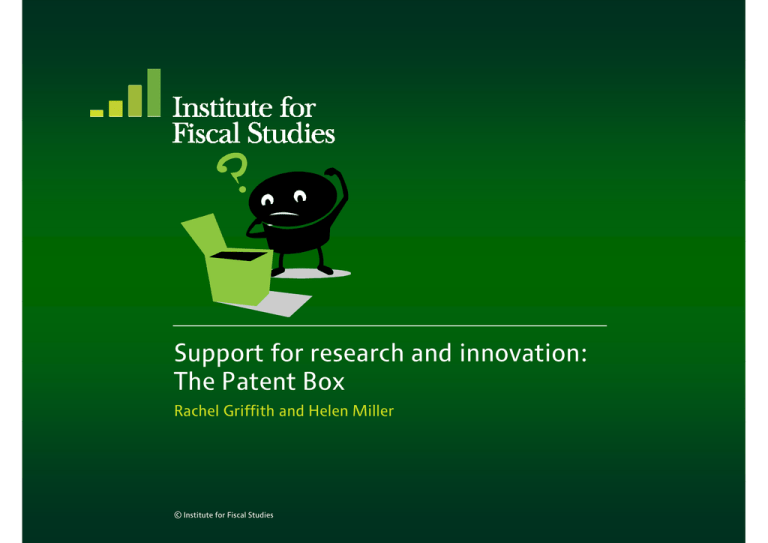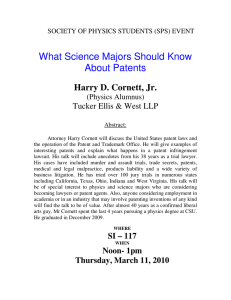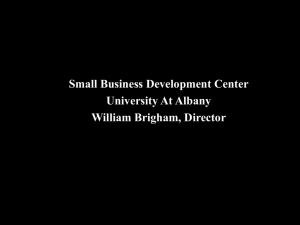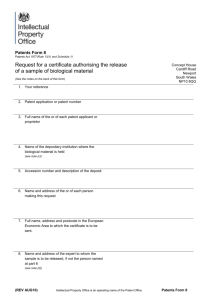Support for research and innovation: The Patent Box
advertisement

Support for research and innovation: The Patent Box Rachel Griffith and Helen Miller © Institute for Fiscal Studies Patent Box • Reduces corporation tax rate from 28% to 10% for the income from patents • Very few details at this stage – Apply to income from patents granted after April 2013 – There will be consultation before introduction in the 2011 Finance Bill – Treasury estimate revenue cost at £1.3bn • Stated aim of the policy: “strengthen the incentives to invest in innovative industries and ensure the UK remains an attractive l location i ffor iinnovation” i ” © Institute for Fiscal Studies Why Government supports innovation • Market failures: – E Externall benefits: b fi ideas id are difficult diffi l to own; others h benefit b fi ffrom results without bearing costs. As a result the market provides insufficient incentives for investment – Financial market failures: difficult to secure external finance for risky and intangible projects • These market failures are largest in the area of basic science • Without market failures it is not clear why government should i t intervene © Institute for Fiscal Studies Well targeted policy? • Policy targets income from ideas ideas, not the activity that generates new ideas © Institute for Fiscal Studies Well targeted policy? • Policy targets income from ideas ideas, not the activity that generates new ideas A i i Activity: R Research h & Discovery Di D l Development Market failures Large external benefits Financial market failures Small external benefits Policy Responses R&D tax credits VC funds Patents (monopoly rights) R&D tax credits Commercialisation C i li i and income creation Few external benefits PATENT BOX • Income is a function of both the quality of the idea and the market power of the firm © Institute for Fiscal Studies Increased incentives to invest in innovation? • Large time lag between a new idea and the income stream from patents – Small incentives for marginal projects – No affect on financial constraints • Increased development p & commercialisation activities to create more income – Low external benefits • Will the UK be a ‘more attractive location’? – Incentives I ti tto llocate t th the f from patents t t iin the th UK – Unlikely that the research underlying eligible patents will need to have been conducted in the UK © Institute for Fiscal Studies Who will benefit? • In theory all firms which create income from patents • In practice a few large firms hold the majority of patents – In 2005, of all the patent applications filed by UK headquarted firms to the European Patent Office, Office the 4 largest firms accounted for over a fifth – Likely that these firms are also most able to create large income streams © Institute for Fiscal Studies Costs • Large deadweight costs – Subsidising activity that would have happened already – Firms attributing more income to patents • Cost in forgone revenue: Treasury estimate £1.3bn – Coming at a time of large ccuts ts else elsewhere, here incl including ding to science and research and higher education budgets © Institute for Fiscal Studies


